The G7 summit is getting underway today and there has been a campaign for leaders to adopt a declaration supporting education for girls in crises.
Why education for girls in crises? Because the world currently has the highest number of refugees and internally displaced persons since WWII. Education is often pushed to the side lines and guess who is affected the most? Girls. Girls are 2.5 times more likely to be out of school than boys during crises. So, it is time to change that and the G7 leaders have the power to do so in their hands.
Conversations about girls’ education are often so filled with facts that we can forget that these girls are real people. They are like any other teenage girls in the world, except, through no fault of their own, they find themselves in unimaginable circumstances. With their misfortune comes resilience, strength and passion to change the future. All girls are superheroes in this fight for education in crises, but let me introduce you to three: Fatu, Muzoon, and Zaynab. Three girls who have three unique stories. What do they have in common other than their resilience and humility? They have each used their voices to ensure that girls in crises globally get the same opportunities that education has given to them.
These three girls’ are fighting for education in crises, and you should too.
Fatu, Girls’ Education Advocate for Plan International Sierra Leone
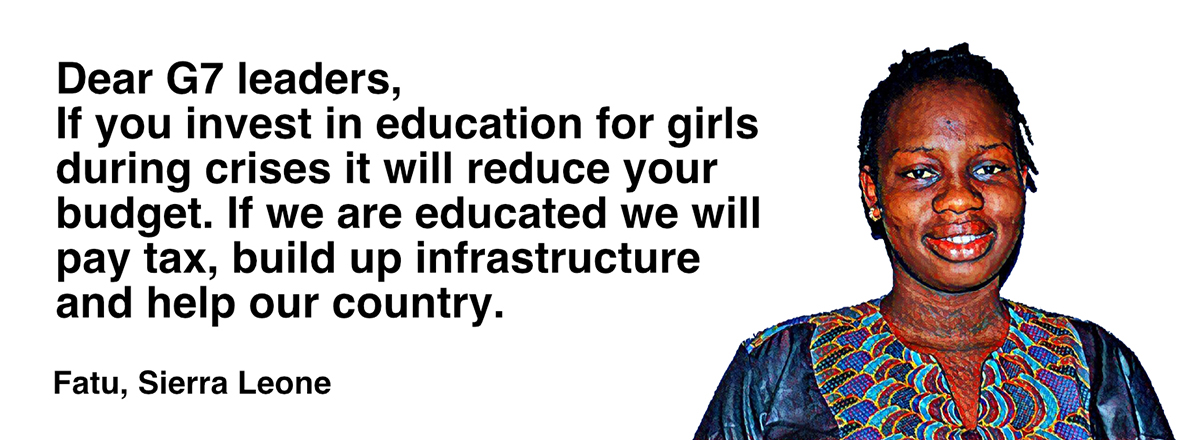
In 2011, Fatu, along with all students in Sierra Leone, was out of school for a year because of the ebola crisis. Unlike the majority of her classmates, Fatu undertook independent studies at her home, knowing the importance of education. When asked about the effect of ebola on girls in her community, she paints a grim but real picture of girls being forced to marry and becoming pregnant. Fatu saw far too many of her friends not return to school when it re-opened and she has a mission to change that.
This 18 year old youth advocate has devoted her life to advocating for girls’ education in crises in her community and nationally. From a young age, she had a passion for ensuring her peers were in school. She has since become a strong voice for girls in her community and country through meeting with politicians, speaking at conferences, working with NGOs and volunteering in a refugee camp. Her preferred tool of change is social media, Fatu speaks to her fellow girls who faced struggles during crises and amplifies their stories through writing powerful pieces online.
Although secondary school did not come easy, Fatu is awaiting her exam results and is hoping to pursue medical school. This strong young woman is making waves and is determined that what happened to her and her friends during the ebola crisis, will never happen to girls again.
Muzoon, UNICEF Goodwill Ambassador
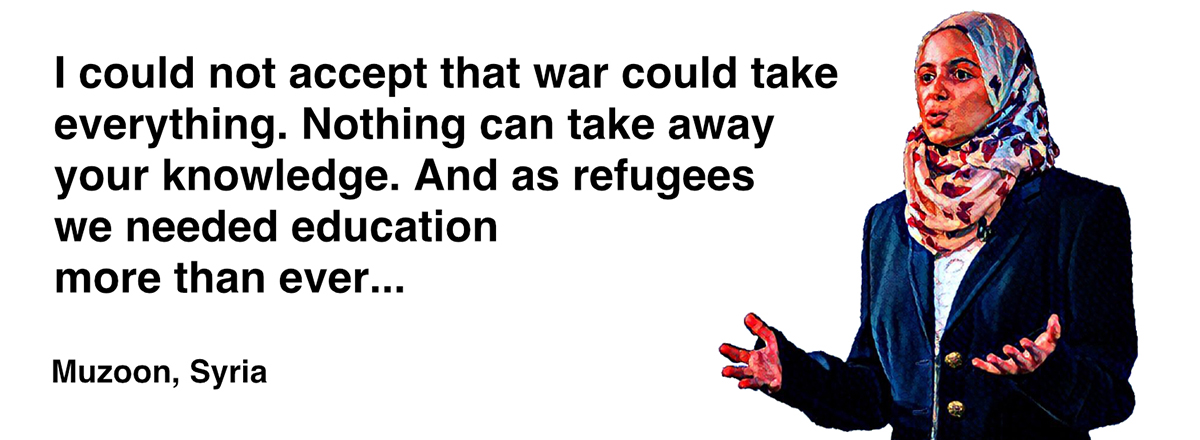
Meet Muzoon, a young Syrian woman who knows the power of books. Muzoon was just 14 years of age when she fled Syria with her family in 2013. She brought her greatest power in her bag: the power of education through her books. Muzoon knew the difficulty of getting into a school in the refugee camp and was determined to continue learning no matter what.
Muzoon not only wanted to finish her education but she wanted all girls to have their basic right to education. After class each day, she would go from tent to tent urging parents not to marry off their daughters and to instead send them to school. Her powerful actions garnered the attention of UNICEF and since then Muzoon has been able to reach many girls in many refugee camps.
When she eventually resettled in the UK with her family, she took with her the hopes and dreams of all the out of school youth living in crises. Muzoon uses her voice globally to ensure that world leaders and changemakers do not forget these children and that they will have the same opportunity that she did.
Zaynab, Malala Fund girl advocate
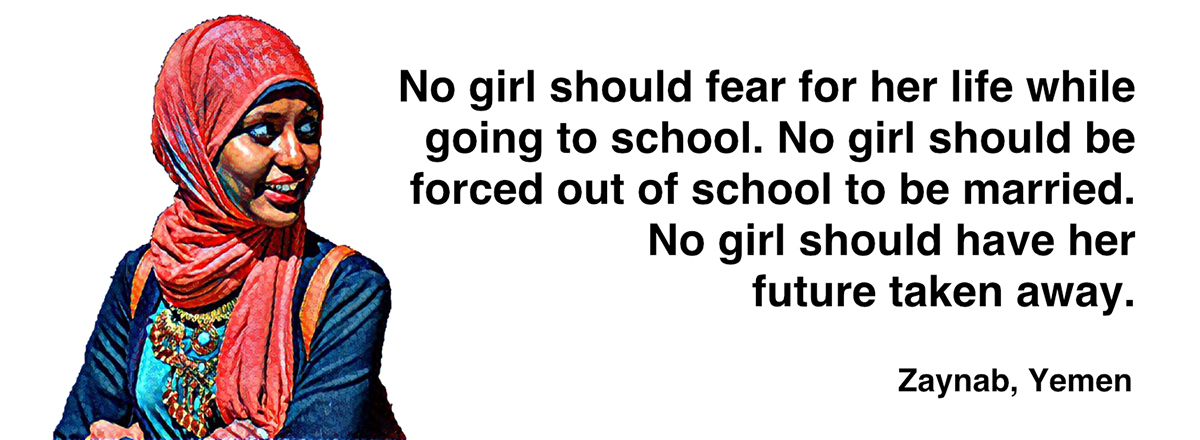
Although Zaynab’s life has been uprooted by three wars, this has only strengthened her resolve to fight for girls’ education. This remarkable young woman knows what it feels like to be in fear in the classroom.
During the revolution in Yemen, Zaynab remained in school until it was shut down. When she arrived in the United States, Zaynab immersed herself in her education, resulting in 4.0 GPA. Zaynab is a strong believer in the power of sport, starting a soccer team in her high school to empower girls refugees and immigrants. She is now studying to become a human rights lawyer so she can go back to Yemen and support her people.
Zaynab is a fierce advocate for girls’ education in crises and works with the Malala Fund to ensure that world leaders do not forget about the 130 million girls who are not in school. She spoke at the United Nations and other important conversations to share her perspective.
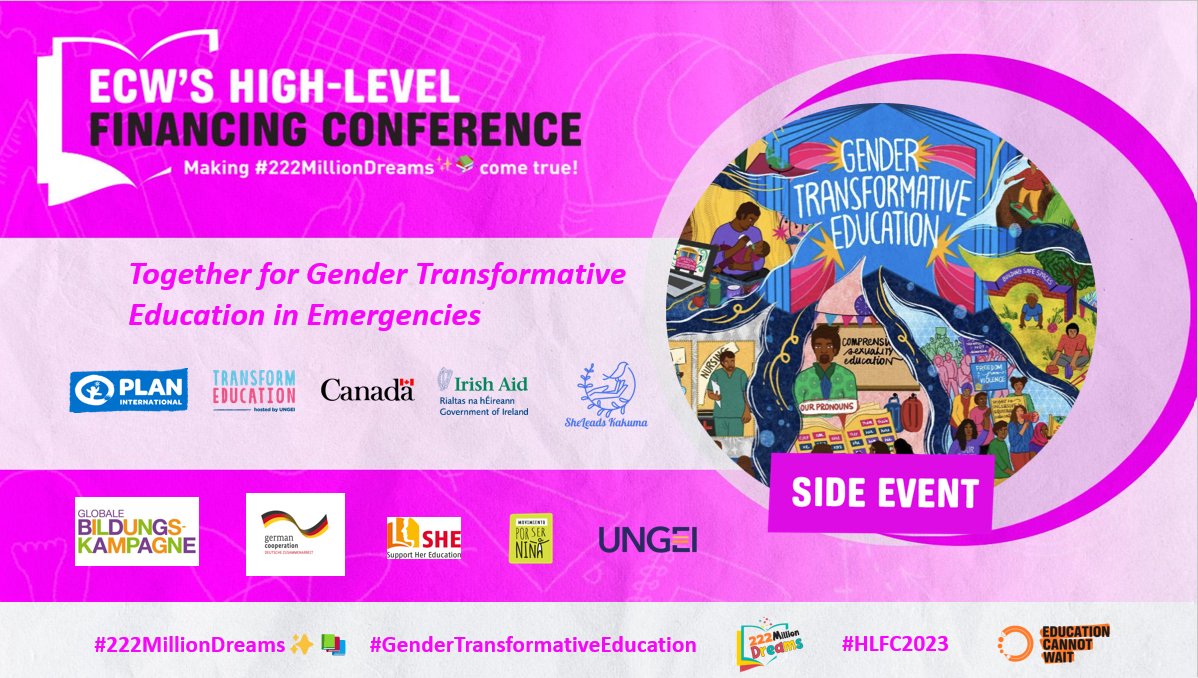
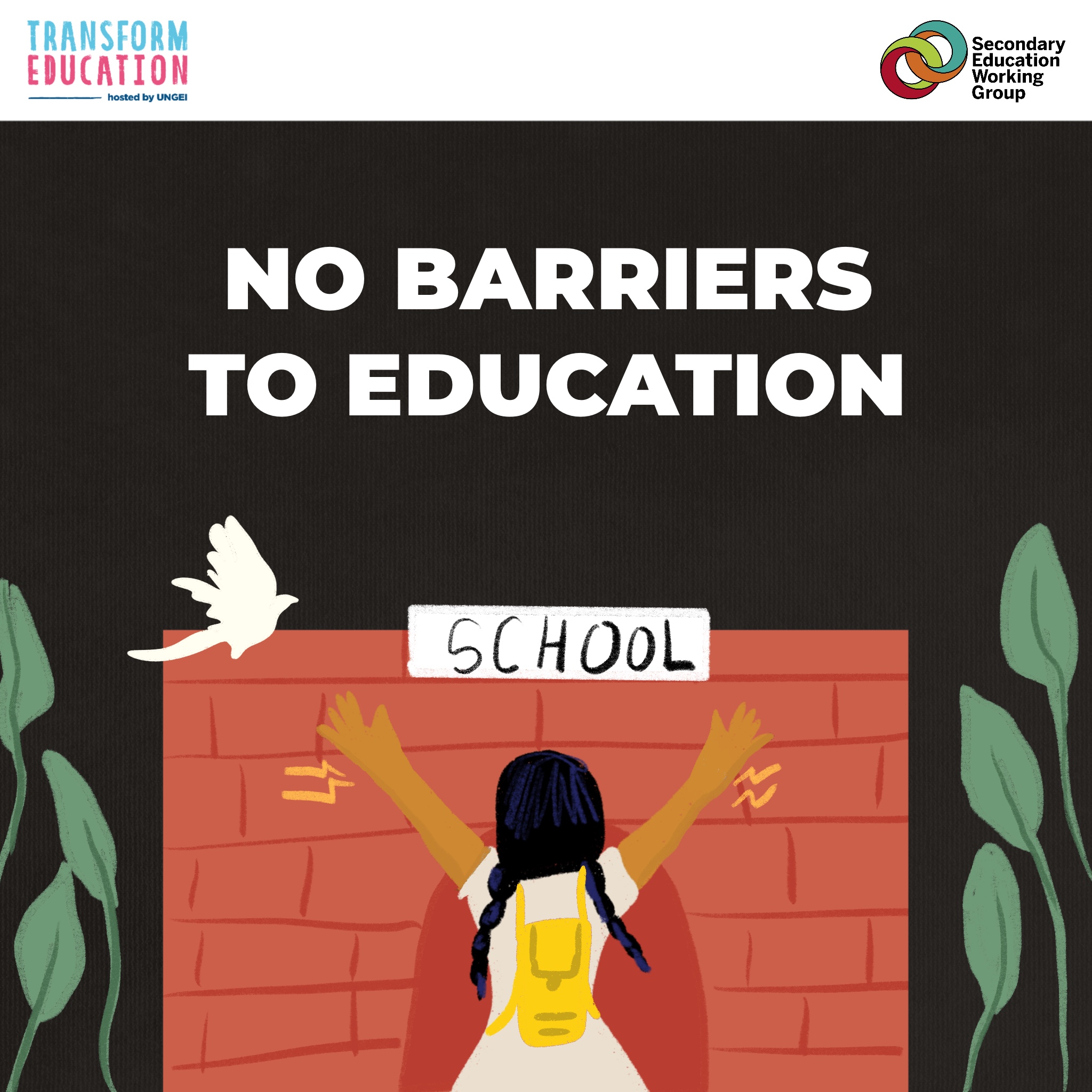
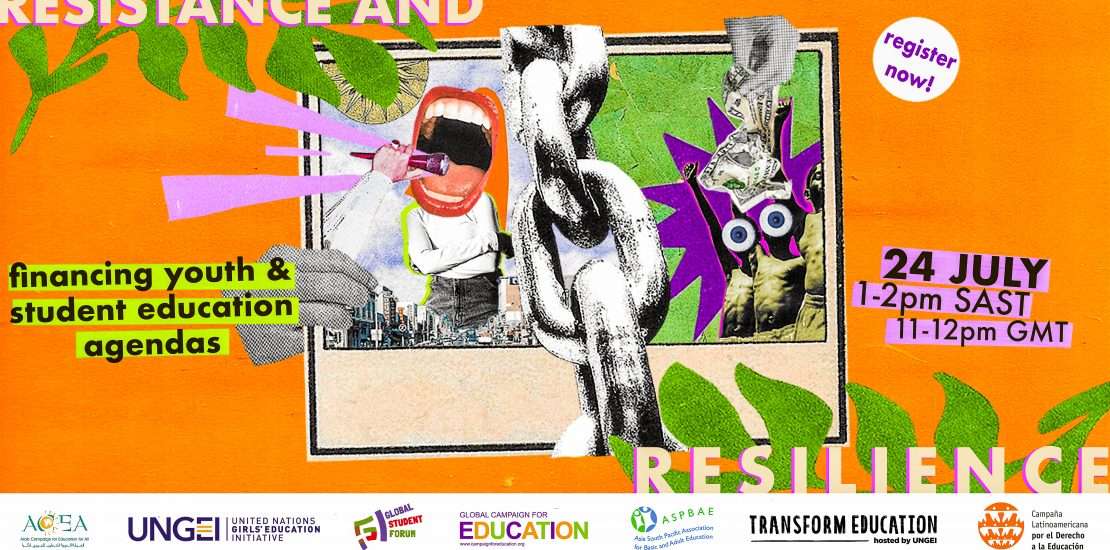
 English
English العربية
العربية Български
Български Hrvatski
Hrvatski Čeština
Čeština Dansk
Dansk Nederlands
Nederlands Suomi
Suomi Français
Français Deutsch
Deutsch Ελληνικά
Ελληνικά हिन्दी
हिन्दी Italiano
Italiano Română
Română Русский
Русский Español
Español Maltese
Maltese Zulu
Zulu አማርኛ
አማርኛ